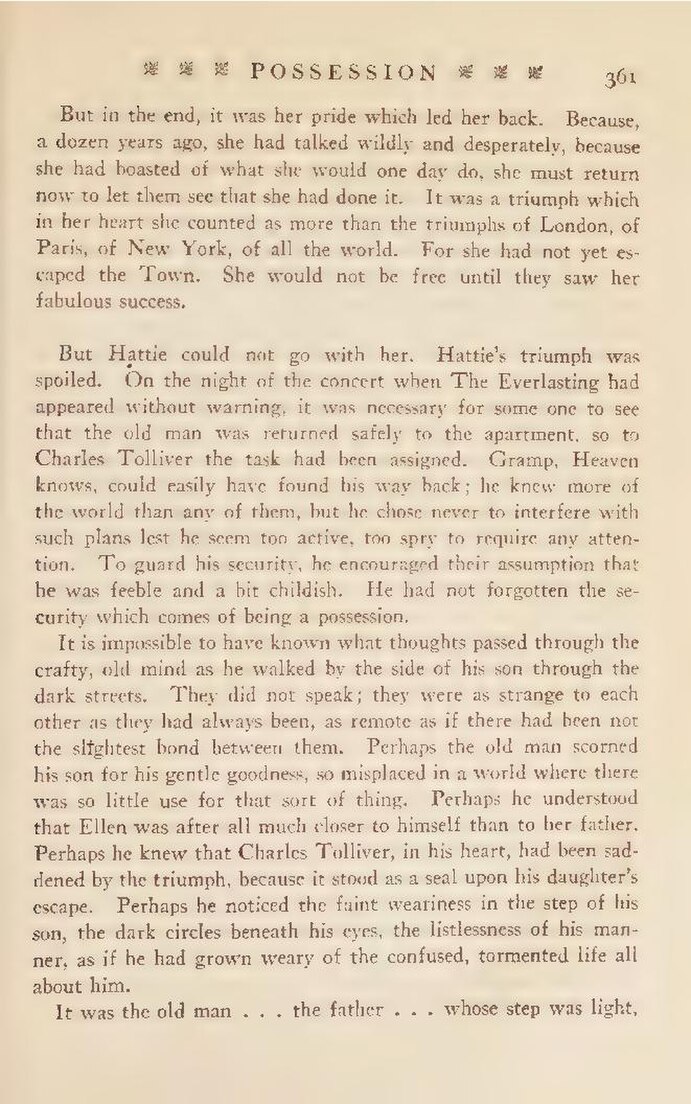But in the end, it was her pride which led her back. Because, a dozen years ago, she had talked wildly and desperately, because she had boasted of what she would one day do, she must return now to let them see that she had done it. It was a triumph which in her heart she counted as more than the triumphs of London, of Paris, of New York, of all the world. For she had not yet escaped the Town. She would not be free until they saw her fabulous success.
But Hattie could not go with her. Hattie's triumph was spoiled. On the night of the concert when The Everlasting had appeared without warning, it was necessary for some one to see that the old man was returned safely to the apartment, so to Charles Tolliver the task had been assigned. Gramp, Heaven knows, could easily have found his way back; he knew more of the world than any of them, but he chose never to interfere with such plans lest he seem too active, too spry to require any attention. To guard his security, he encouraged their assumption that he was feeble and a bit childish. He had not forgotten the security which comes of being a possession.
It is impossible to have known what thoughts passed through the crafty, old mind as he walked by the side of his son through the dark streets. They did not speak; they were as strange to each other as they had always been, as remote as if there had been not the slightest bond between them. Perhaps the old man scorned his son for his gentle goodness, so misplaced in a world where there was so little use for that sort of thing. Perhaps he understood that Ellen was after all much closer to himself than to her father. Perhaps he knew that Charles Tolliver, in his heart, had been saddened by the triumph, because it stood as a seal upon his daughter's escape. Perhaps he noticed the faint weariness in the step of his son, the dark circles beneath his eyes, the listlessness of his manner, as if he had grown weary of the confused, tormented life all about him.
It was the old man . . . the father . . . whose step was light,
